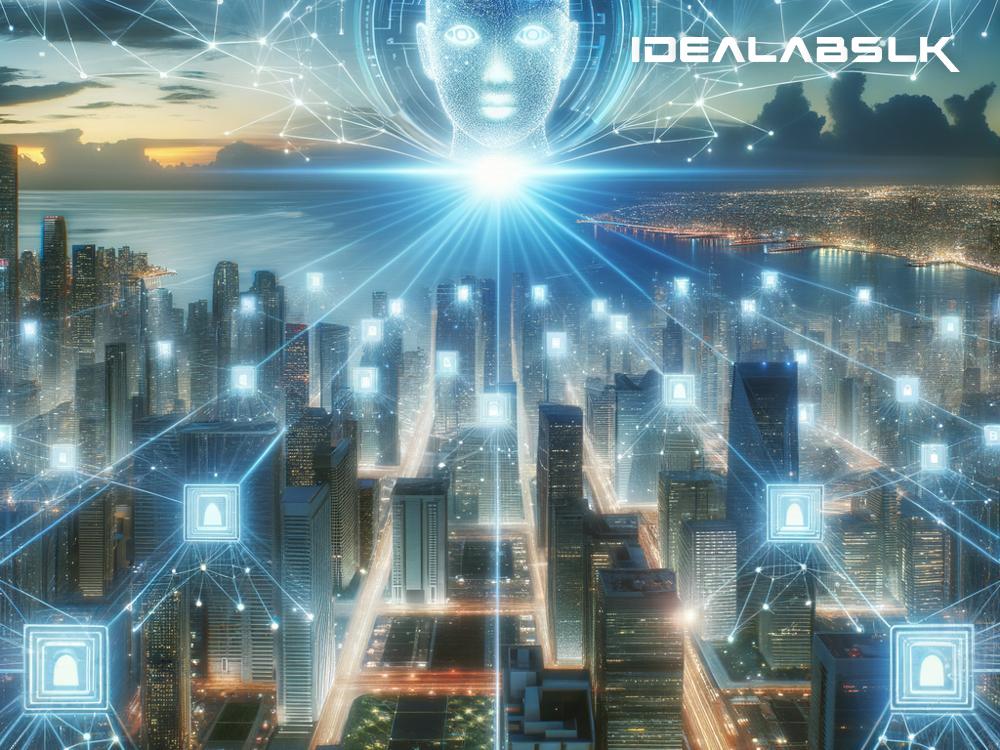Blockchain and AI: Transforming Real Estate Security
In today’s rapidly changing technological landscape, two buzzwords that have captured our imagination are Blockchain and Artificial Intelligence (AI). While they thrive across various sectors, their convergence in the realm of real estate is nothing short of revolutionary, particularly when it comes to enhancing security. Let's demystify these technologies and explore how they are reshaping real estate security, making it more robust and efficient.
The Essence of Blockchain and AI
Before diving into their impact on real estate security, let's briefly understand what Blockchain and AI are. Think of Blockchain as a digital ledger that records transactions in a secure, transparent, and immutable manner. Each transaction is a "block," linked to the previous and next transaction, forming a "chain." This technology is synonymous with cryptocurrencies like Bitcoin but has far-reaching applications beyond digital money.
AI, on the other hand, refers to machines or systems mimicking human intelligence to perform tasks and improve themselves based on the information they collect. AI can analyze data, recognize patterns, make decisions, and learn from outcomes, all without human intervention.
The Fusion of Blockchain and AI in Real Estate Security
Real estate, a traditionally opaque and paperwork-heavy sector, is ripe for disruption. Here's how Blockchain and AI are teaming up to enhance its security:
1. Simplifying and Securing Transactions: Real estate transactions involve numerous parties and steps, making them complicated and prone to fraud. Blockchain introduces transparency and immutability, ensuring that once a record is added to the chain, it cannot be altered or deleted. This makes fraudulent activities like title forgery virtually impossible. Moreover, smart contracts—self-executing contracts with the terms directly written into code—can automate these transactions, reducing paperwork and the potential for human error.
2. Enhancing Property Management: AI’s prowess in analyzing vast amounts of data can significantly improve property management. From predictive maintenance of physical infrastructure to smart energy management, AI systems can identify patterns and predict issues before they escalate, ensuring better security and efficiency. Combined with Blockchain's transparent record-keeping, property owners have a clear, tamper-proof history of repairs, modifications, and maintenance activities.
3. Improving Access Control: Blockchain and AI can together revolutionize access control systems in real estate. Traditional physical keys and even digital key cards can be copied or hacked. Enter Blockchain and AI: a digital identity stored on a blockchain can be nearly impossible to duplicate, and when combined with AI-powered biometric systems, such as facial recognition or fingerprint scanning, it ensures that only authorized individuals can access a property. This system can also dynamically adjust access rights, enhancing security dynamically in real-time.
4. Streamlining Due Diligence: Due diligence in real estate involves verifying the authenticity of property documents, legal compliance, and the integrity of previous transactions. This process can be costly and time-consuming. However, if property records are stored on a blockchain, they become easily verifiable, reducing the time and cost involved in these processes. AI can further expedite this by efficiently analyzing these records and flagging potential issues.
5. Democratizing Real Estate Investments: Blockchain and AI can make real estate investments more secure and accessible. By tokenizing property assets on a blockchain, investors can purchase digital shares of a property. This not only makes real estate investments accessible to a broader audience by lowering entry barriers but also ensures secure, transparent transactions. AI-powered platforms can facilitate these investments by assessing risks, predicting market trends, and offering personalized investment advice.
The Road Ahead
The integration of Blockchain and AI in real estate is still in its nascent stages, but the potential is enormous. As these technologies mature and stakeholders become more familiar with their capabilities, we can expect a seismic shift in how real estate transactions and management are conducted. However, challenges such as regulatory hurdles, the need for standardization, and ensuring the technology remains accessible to all stakeholders will need to be addressed.
In conclusion, Blockchain and AI stand to dramatically enhance the security and efficiency of the real estate sector. By fostering transparency, reducing fraud, and streamlining processes, this technological synergy not only benefits property owners and investors but also has the potential to make real estate more accessible and attractive to a global audience. The future of real estate security looks promising, and it's paved with blockchain and AI.

